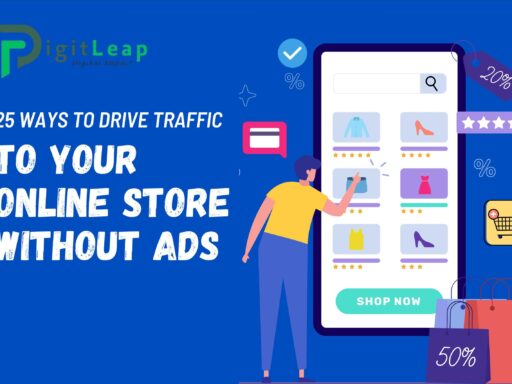Choosing the right e-commerce platform is crucial for the success of your online business. Whether you’re a small startup or a well-established company, the platform you select can impact your store’s performance, customer experience, and growth potential. With so many options available, it can be overwhelming to decide which one is the best fit for your needs. Let’s look at some of the best e-commerce platforms that can help you build and grow your online store.
1. Shopify
Shopify is one of the most popular e-commerce platforms, known for its ease of use and flexibility. Whether you’re a beginner or experienced, Shopify makes setting up an online store quick and straightforward. It offers various themes, plugins, and integrations, allowing you to customize your store to suit your brand. Plus, Shopify’s 24/7 customer support ensures you always have help when needed. The platform is great for small to medium-sized businesses, but it can also handle large-scale stores.
Pros:
- User-friendly interface
- Wide range of customizable themes
- 24/7 customer support
- Built-in payment processing (Shopify Payments)
Cons:
- Transaction fees unless using Shopify Payments
- Some advanced features may require additional apps
2. WooCommerce
WooCommerce is an open-source e-commerce platform designed for WordPress users. If you’re already familiar with WordPress, adding WooCommerce to your site allows you to create a full-featured online store. It’s highly customizable, with numerous plugins and extensions to help you build exactly the store you need. WooCommerce is perfect for those who want flexibility and control over their website’s design and functionality.
Pros:
- Completely free to use (aside from hosting and additional features)
- Highly customizable
- Large community of developers for support
- Perfect for WordPress users
Cons:
- Requires hosting and more technical setup
- Can get expensive with paid plugins
3. BigCommerce
BigCommerce is a robust e-commerce platform known for its scalability and comprehensive feature set. It’s ideal for businesses looking to grow and expand over time. BigCommerce offers advanced SEO tools, multi-channel selling (like integration with Amazon, eBay, and Facebook), and built-in features to help you optimize your store. It’s particularly useful for larger businesses or those expecting rapid growth.
Pros:
- No transaction fees on any plan
- Excellent SEO features
- Supports multi-channel selling
- Highly scalable
Cons:
- Higher pricing for larger businesses
- Limited theme customization options
4. Wix eCommerce
Wix is well-known for its website builder, but its eCommerce platform is also a solid option for small businesses and entrepreneurs. Wix eCommerce offers an intuitive drag-and-drop interface, making it easy to design your online store without any coding knowledge. The platform comes with a wide range of templates and has built-in tools to manage your products, payments, and shipping. While it’s not as powerful as some other platforms, Wix is a great choice for smaller stores that want a simple, visually appealing website.
Pros:
- Easy drag-and-drop interface
- Beautiful, customizable templates
- Affordable pricing
- Great for small businesses
Cons:
- Limited scalability for larger stores
- Fewer advanced features compared to competitors
5. Squarespace
Squarespace is a popular website builder that also offers strong e-commerce capabilities. Known for its sleek and modern templates, Squarespace is a good option for those who prioritize design and aesthetics. While it doesn’t offer as many features as Shopify or BigCommerce, it provides enough tools to run a small to medium-sized online store effectively. With its easy-to-use interface, Squarespace is ideal for creative businesses or those who want a professional-looking store without much technical effort.
Pros:
- Stunning design templates
- Easy-to-use platform
- No transaction fees on higher-tier plans
- Great for visually-driven businesses
Cons:
- Fewer integrations and advanced e-commerce features
- Limited customization options compared to other platforms
6. Magento (Adobe Commerce)
Magento is a powerful e-commerce platform designed for large businesses with technical expertise. It’s an open-source platform, meaning you have full control over your store’s design and functionality. Magento is highly scalable and customizable, making it perfect for companies with specific requirements. However, it requires more technical knowledge to set up and manage. If you have a development team or can afford to hire one, Magento can handle just about anything you throw at it.
Pros:
- Full customization and scalability
- Extensive feature set
- Ideal for large businesses
- No transaction fees
Cons:
- Requires technical expertise
- High development costs
- Hosting costs are separate
7. Zyro
Zyro is a newer, budget-friendly e-commerce platform that caters to small businesses and startups. It offers simple tools to create an online store quickly, with drag-and-drop functionality, templates, and AI-based tools to help you design your site. Zyro is a good choice for those who need to get up and running fast without spending too much, but it may lack some advanced features as your business grows.
Pros:
- Affordable pricing
- Easy-to-use interface
- AI tools to help with design and content
- Perfect for startups and small businesses
Cons:
- Limited advanced features
- Fewer customization options
8. Ecwid
Ecwid is a bit different from the other platforms because it allows you to add e-commerce functionality to an existing website. Whether you have a blog, a business website, or a social media presence, Ecwid lets you integrate an online store without having to rebuild your entire site. It’s user-friendly and supports multi-channel selling, making it an excellent choice for those who want to keep their current website while adding a store.
Pros:
- Can be added to any existing website
- Supports multi-channel selling
- User-friendly setup
- Free plan available
Cons:
- Limited features compared to full e-commerce platforms
- Fewer customization options for standalone stores
Conclusion
Selecting the best e-commerce platform depends on your business needs, technical skills, and budget. Shopify and WooCommerce are great for those seeking flexibility and scalability, while platforms like Wix and Squarespace cater to smaller businesses with easy-to-use tools. BigCommerce and Magento are perfect for larger enterprises, and if you already have a website, Ecwid allows for easy integration. Consider the pros and cons of each platform to determine which one is the right fit for your online store.
FAQs
Q1. Which platform is the easiest for beginners?
Shopify and Wix are known for their user-friendly interfaces, making them great for beginners.
Q2. Is WooCommerce free?
Yes, WooCommerce is free, but you’ll need to pay for hosting, and some plugins or themes may cost extra.
Q3. Can I use my existing website to create an online store?
Yes, platforms like Ecwid allow you to add e-commerce functionality to an existing website.
Q4. Which platform is best for large businesses?
Magento and BigCommerce are excellent choices for large businesses due to their scalability and advanced features.
Q5. Do I need coding skills to use these platforms?
Most platforms, like Shopify, Wix, and Squarespace, don’t require coding skills. However, WooCommerce and Magento may need more technical knowledge.





